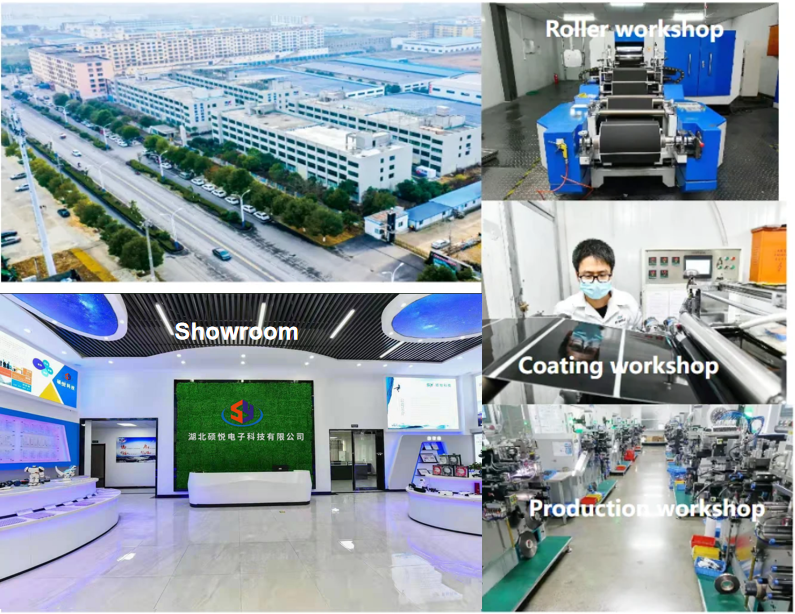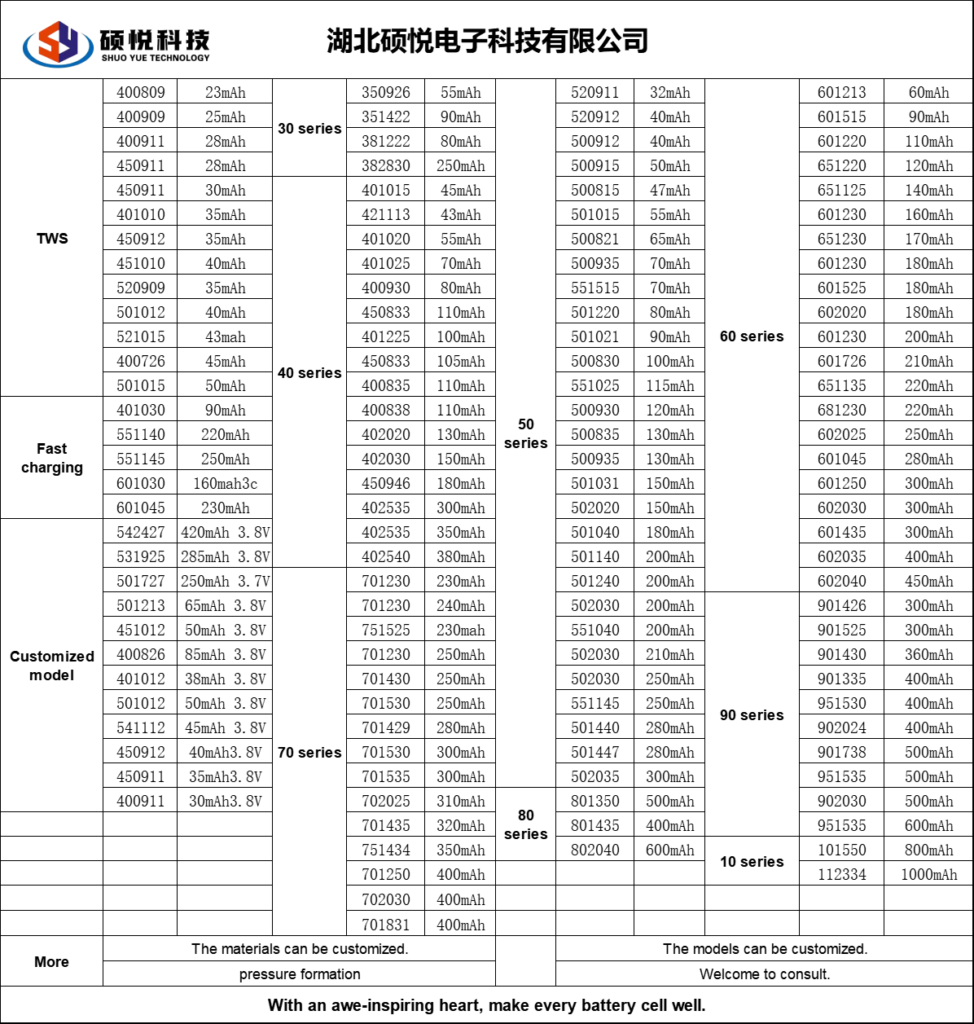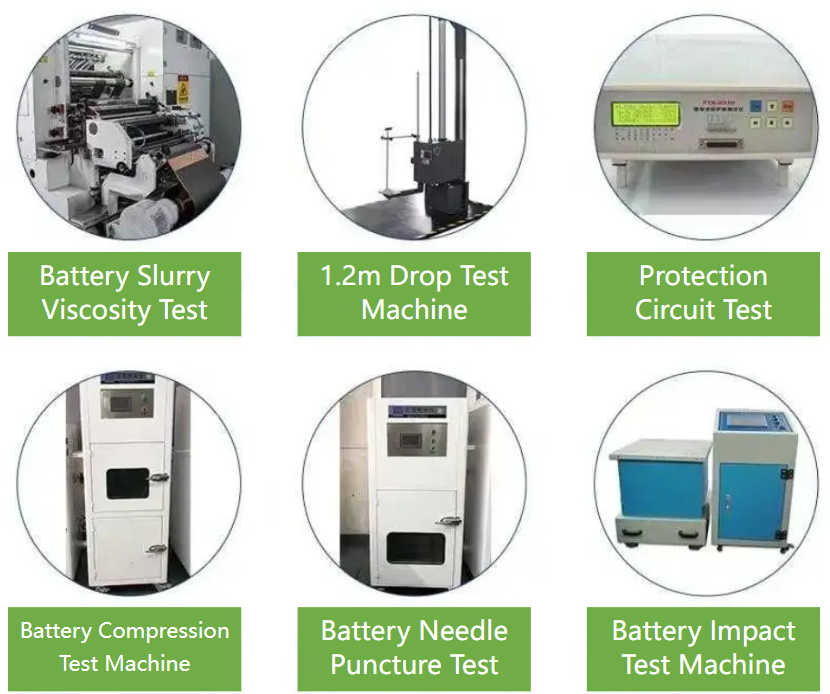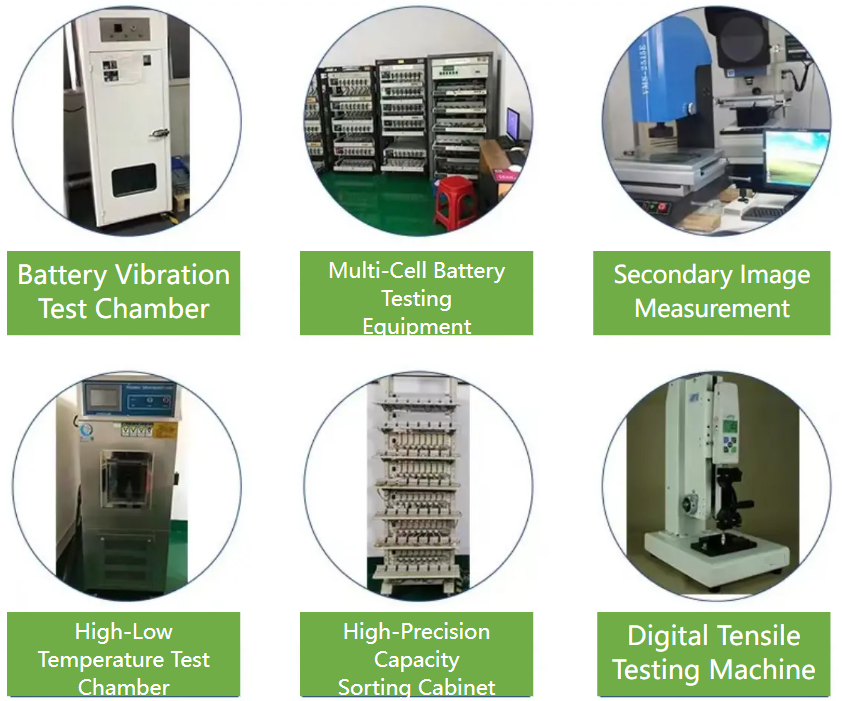
lithium ion polymer battery manufacturer
As a leading LiPo Battery Supplier, we offer customizable, high-performance, and certified lithium polymer batteries to power your business needs.

Professional Lithium Polymer Battery Manufacturer
Shuoya’s products have obtained various certifications. We haven’t show all the certificates here, and if you need more certifications’information or require certificates for custom products, please contact us.





Certification

How to Find a Reliable LiPo Battery Supplier:
A Comprehensive Guide
Before starting your search, outline your specific needs:
- Battery Specifications: Voltage, capacity (mAh), size, weight, and discharge rate (C-rating).
- Application: Understand whether the batteries are for drones, RC devices, IoT devices, medical devices, or other uses.
- Quantity: Determine whether you need a small batch for prototyping or large-scale production.
- Online Marketplaces: Explore platforms like Alibaba, Global Sources, or Made-in-China to find battery manufacturers.
- Industry Directories: Check specialized directories for battery suppliers.
- Exhibitions and Trade Shows: Attend electronics or battery-focused trade shows to meet suppliers face-to-face.
- Experience: Look for suppliers with at least 5–10 years of experience in manufacturing LiPo batteries.
- Certifications: Ensure they have certifications like ISO 9001 (Quality Management) and IEC 62133 (Battery Safety Standards).
- Reputation: Check reviews, testimonials, or case studies from previous clients.
- Sample Testing: Request product samples and test them for performance, durability, and safety.
- Material Standards: Confirm that the supplier uses high-quality raw materials to prevent swelling, short circuits, or overheating.
- Quality Control Processes: Ask about their manufacturing and quality assurance processes, such as cell matching and capacity grading.
Ensure the batteries meet international standards and certifications such as:
- CE, FCC, and RoHS: For environmental and safety compliance.
- UN38.3 Certification: Essential for shipping LiPo batteries by air.
- MSDS Documentation: Confirms the chemical safety of the battery.
- Customization: If you need specific battery shapes, sizes, or performance features, ensure the supplier offers custom manufacturing.
- Production Capacity: Verify their ability to handle your required order volume without delays.
- Technical Support: Look for suppliers with a responsive technical team that can assist with integration and troubleshooting.
- Request detailed quotations from multiple suppliers.
- Compare costs, but avoid choosing solely based on price—prioritize quality and reliability over cheap options.
- Shipping Options: Ensure the supplier can ship safely and efficiently, especially for hazardous goods like LiPo batteries.
- Lead Times: Confirm production and delivery timelines that align with your project schedule.
- Packaging Standards: Check that the batteries are securely packed to prevent damage during transit.
- References: Ask for contact information of their existing clients to verify their performance.
- Factory Audits: If possible, visit the supplier’s facility or hire a third-party inspection service to assess their production environment and capabilities.
Begin with a smaller order to evaluate the supplier’s consistency in:
- Product quality
- Timely delivery
- Post-sales support
Once you’ve found a reliable supplier:
- Establish clear terms for pricing, delivery, and quality assurance in a contract.
- Foster open communication for future collaborations and improvements.
Finding a suitable LiPo battery supplier requires careful research, evaluation, and testing. By following this guide, you can ensure that you partner with a trustworthy manufacturer that delivers high-quality batteries tailored to your specific needs. Always prioritize safety, compliance, and reliability over cost to avoid long-term issues.









